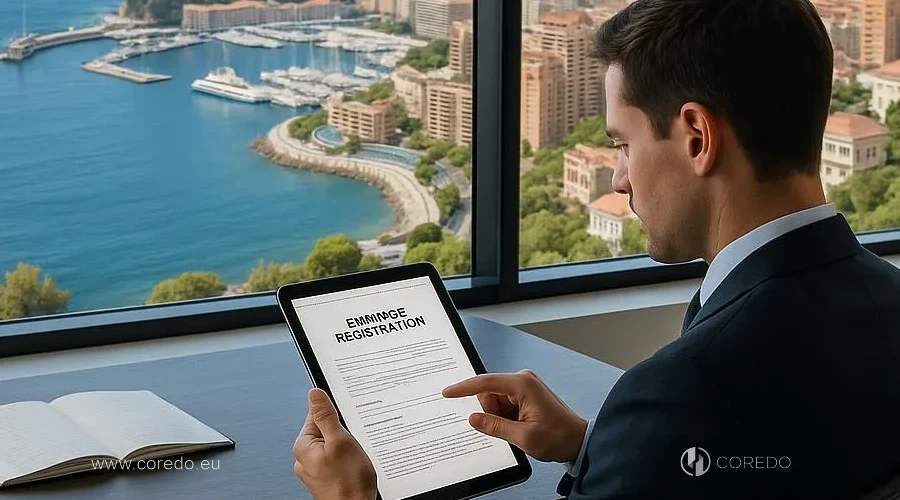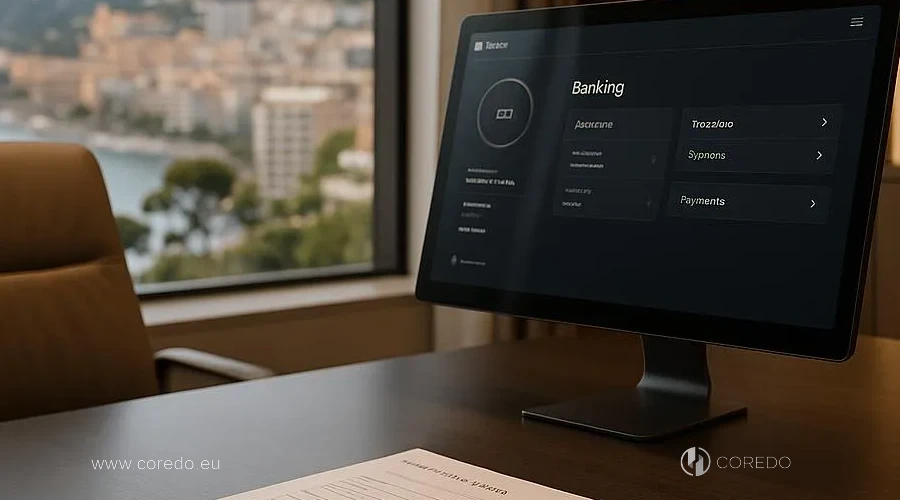In my practice, I have repeatedly encountered situations where even experienced business owners underestimate the specifics of registering a company in Monaco and mistakenly assume that this jurisdiction is just a glamorous “cover” for status. In reality, it is a strategic tool for asset diversification, tax optimization, and building an international structure with high levels of protection and confidentiality.
Business Registration in Monaco: Advantages

Registering a business in Monaco provides entrepreneurs with several significant benefits—from an attractive tax policy to a reliable legal system and a high level of security. Choosing this jurisdiction gives you access to economic and political stability, developed infrastructure, and the prestige of one of Europe’s financial centers. Below, we will examine the key advantages in more detail.
Economic Stability of Business in Monaco
Monaco is one of the few European financial centers where economic stability is combined with political predictability and absolute transparency of the legal system. There is no national debt here, and the GDP per capita consistently ranks in the top five in the world. For international partners, registering a company in Monaco signals serious intentions, high solvency, and readiness to comply with international corporate governance standards.
Taxes and Incentives in Monaco
Contrary to popular belief, Monaco is not a classic offshore zone in Europe but a jurisdiction with a transparent tax system and strict requirements for real economic activity. The main tax incentive is the absence of a dividend tax and minimal profit taxation for companies that do not conduct business in France and do not receive more than 25% of their income from France. For such companies, there is no corporate tax in Monaco if the activity is not related to trading or providing services on the local market.
Confidentiality and Protection of Business
Monaco is traditionally associated with a high degree of confidentiality for business owners. The legislation ensures the protection of information about beneficiaries and allows for the implementation of effective asset protection mechanisms: trusts, family offices, holding structures. Features of Monaco’s inheritance law allow flexible planning of business and asset transfers between generations, minimizing the risks of disputes and losses.
Company Registration in Monaco – Step by Step

Company registration in Monaco requires careful preparation and understanding of local business requirements. The first step is to determine the form and structure of the company, as this will affect the entire procedure and the final legal and financial obligations. Below are the key steps, starting with choosing the appropriate organizational and legal form.
How to Choose the Form and Structure of a Company
The COREDO team recommends considering not only corporate governance requirements but also future plans for scaling, asset diversification, and bank interactions when structuring an international holding in Monaco. Monaco’s corporate structure must comply with international standards and provide transparency for banks and regulators.
Requirements for Share Capital and Office
For SAM, the minimum share capital is 150,000 euros, for SARL 15,000 euros, for SCA 150,000 euros, and for SNC, there are no requirements. The capital must be deposited in a Monaco bank account before registration. Having a physical office in the principality and usually hiring at least one resident employee in Monaco is mandatory.
Company Registration in Monaco: Step by Step
The process of registering a company in Monaco includes several key stages:
- Preparing a business plan and set of founding documents (charter, beneficiary information, capital structure).
- Obtaining a business activity permit from the Monaco government (Direction de l’Expansion Économique).
- Opening a temporary bank account to deposit share capital.
- Notarizing documents and submitting them to the Companies Register.
- Paying registration fees (from 600 to 1,000 euros depending on the form).
- Receiving a registration certificate (Extrait du Registre du Commerce et de l’Industrie).
AML, KYC, and Due Diligence: Documents and Requirements
Registering a legal entity in Monaco is impossible without undergoing strict AML (Anti-Money Laundering) and KYC (Know Your Customer) procedures. It requires submitting a full set of documents for all beneficiaries, information on asset origin, ownership structure, and undergoing due diligence procedures for companies in Monaco.
Bank Account in Monaco: How to Open?

Opening a bank account in Monaco: a task requiring careful document preparation and understanding of the local banking system specifics. To understand how to open a bank account in Monaco, it is important to consider not only the main steps of the procedure but also the requirements banks set for their clients: both individuals and companies.
Company Requirements in the Banking Sector
Monaco’s banking system is known for a high degree of asset protection and confidentiality but has strict requirements for new clients. To open a bank account in Monaco, it is necessary to provide not only founding documents but also a detailed business plan, confirmation of fund sources, and pass a personal interview with a bank representative.
Financial Control and Reporting Audit
All companies in Monaco are required to keep corporate accounts and undergo annual audits. Reporting and audit requirements for companies in Monaco comply with international IFRS standards, with mandatory external audits for large structures.
License for a Startup in Monaco

A license for a startup in Monaco is one of the key stages of launching a business in the principality. The legal and professional requirements are quite strict here, so for a successful start, it is essential to understand the business and professional licensing procedures in advance.
Business and Professional Licensing
In Monaco, almost all types of commercial activities are subject to licensing, including financial services, consulting, IT, real estate, asset management. The licensing process depends on the industry and involves submitting a business plan, confirming the management’s qualifications, and meeting AML requirements.
Support for Startups and Innovative Businesses
The state actively supports startups and innovative companies by offering tax incentives, office rent subsidies, and access to specialized accelerators. Simplified licensing procedures and participation in government support programs are provided for technological projects.
Risks and Limitations of Business in Monaco

Conducting business in Monaco is associated with not only opportunities but also several significant risks and limitations that affect both local and foreign entrepreneurs. Special attention should be paid to the specifics of regulation for non-residents: it is precisely these aspects we will highlight in the following subsections.
Risks for Foreign Owners
Despite clear advantages, registering a company in Monaco is associated with several risks and restrictions for foreign owners. Primarily, there are restrictions on owning certain types of businesses for non-residents, high requirements for “substance” (having an office, staff, real activity), and risks of bank account opening denial due to insufficient transparency of structure.
How to Minimize Risks and Protect Assets
Business Through Monaco: Entry into EU and Asian Markets
Business through Monaco is an effective way to access both EU markets and Asian platforms, utilizing the principality’s unique position and developed financial infrastructure’s advantages. Thanks to a flexible tax regime and international prestige, Monaco becomes a key starting point for creating international holdings and asset diversification.
International Holdings and Asset Diversification
Monaco is an ideal platform for creating an international holding, family office, or investment structure. The jurisdiction allows building complex corporate structures with asset diversification through Monaco, which is particularly relevant for companies operating in EU and Asian markets.
International Business Restrictions
For international business, Monaco offers unique opportunities for cross-border taxation, minimizing tax risks, and building flexible interaction schemes with the EU and Asian countries. However, it is important to consider the restrictions associated with the need to comply with international AML, KYC standards, and requirements for real economic activity in the principality.
Opening a Company in Monaco: Step by Step
- Conduct a preliminary audit of business goals and objectives to determine if Monaco suits your model.
- Choose the optimal organizational-legal form and corporate structure.
- Prepare a comprehensive business plan, founding documents, and an AML/KYC package.
- Prior to account opening, pre-agree the structure with the bank to minimize refusal risks.
- Implement an internal control and corporate governance system meeting international standards.
- Use professional legal support in Monaco for all stages—from registration to annual audit.
Frequently Asked Questions
Monaco business advantages: economic stability, prestige, tax incentives, asset protection, and flexibility of corporate structures.
Features of company registration in Monaco: mandatory presence of office and staff, strict compliance procedures, high requirements for structure transparency.
Taxation in Monaco: no dividend tax, exemption from corporate tax subject to “substance” criteria, transparent rules for international holdings.
Compliance and AML in Monaco: strict KYC, due diligence requirements, mandatory source of funds and business structure audit.
Monaco bank accounts: complex opening procedures, high reputation and transparency requirements, required document preparation in advance.
- What are the company registration timelines in Monaco? On average, 6–12 weeks, including obtaining permits and compliance procedures.
- Which industries are most profitable for business in Monaco? Financial services, asset management, IT, consulting, family offices.
- What are the risks for non-residents? Business activity type restrictions, requirements for real activity, bank account opening difficulties.
- How to ensure business owner confidentiality? Using holding structures, trusts, meeting data protection requirements.
Comparative Tables – Examples and Templates
Comparative tables – examples and templates allow for a quick assessment of key differences between legal forms and selecting the optimal option for your business. Below you will find a visual comparison of OPF for business in Monaco, taking into account basic requirements, pros, and limitations of each structure.
We’ll move on to a detailed analysis and key features of each organizational-legal form.
| OPF | Min. Capital | Number of Directors | Office Requirements | Licensing | Suitable For |
|---|---|---|---|---|---|
| SAM (JSC) | 150,000 € | 2 | Yes | Yes | Large, Holding |
| SARL (LLC) | 15,000 € | 1 | Yes | Sometimes | Small/Medium Business |
| SCA (LP) | 150,000 € | 2 | Yes | Yes | investment projects |
| SNC (Partnership) | None | 2 | Yes | No | Partnership Business |
Requirements for Share Capital and Employees
| OPF | Min. Capital | Office in Monaco | Personnel | Hiring Features |
|---|---|---|---|---|
| SAM | 150,000 € | Mandatory | 1+ | Strict employment relationship control |
| SARL | 15,000 € | Mandatory | 1+ | Simplified procedure |
| SCA | 150,000 € | Mandatory | 1+ | For passive investors |
| SNC | None | Mandatory | 1+ | For partnership models |
Tax Rates and Incentives
| Tax Type | Rate | Notes |
|---|---|---|
| Corporate Tax | 0% / 33.33% | 0% if no activity in France |
| Dividend Tax | 0% | For all companies |
| Capital Gains Tax | 0% | For most cases |
| Social Contributions | ~40% of payroll | For employees |
If you are considering Monaco as a strategic platform for international business, I recommend using this guide as a starting point for planning and executing your projects. COREDO’s practice confirms: success in Monaco is always the result of thorough preparation, transparency, and professional support at all stages.